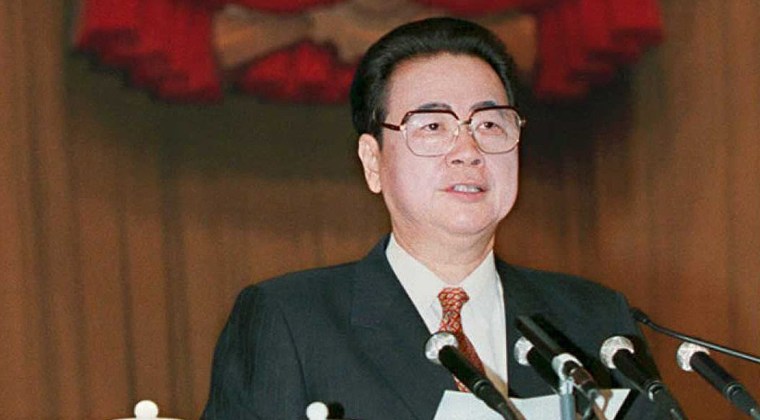BEIJING — Former Chinese Premier Li Peng, reviled by rights activists and many in the Chinese capital as the "Butcher of Beijing" for his role in the 1989 Tiananmen Square crackdown, has died, state media reported on Tuesday.
He was 91.
Li died on Monday in Beijing, Xinhua reported, more than three decades after his government authorized a bloody suppression of student-led pro-democracy protests in the early hours of June 4, 1989.
His death comes as China grapples with a widening political crisis in Hong Kong, where violent protests in the Chinese-controlled territory over an extradition bill have presented Beijing with the most serious popular challenge to its governance since the Tiananmen demonstrations.
Along with then-paramount leader Deng Xiaoping, Li was seen as an unapologetic hard-liner responsible for ordering the assault that crushed weeks of demonstrations by protesters in central Beijing.
His declaration of martial law over parts of Beijing on national television in the weeks before tanks and troops swept the square of protesters made him one of the most prominent faces of a crackdown that continues to color global perception of China's Communist Party leadership.
The death toll given by officials days after the crackdown was about 300, most of them soldiers, with only 23 students confirmed killed. China has never provided a full accounting of the violence, but rights groups and witnesses say the figure could run into the thousands. The topic is taboo in China.
Li's image abroad remains tied to the 1989 crackdown. At home, although broadly disliked by the public, he oversaw China's reemergence from post-Tiananmen isolation into rising global diplomatic and economic clout, a development he celebrated in often defiantly nationalistic public statements.
"Ridding themselves from the predicament of imperialist bullying, humiliation and oppression, the calamity-trodden Chinese people have since stood up," Li said in 1995 in a speech for the Oct. 1 anniversary of the 1949 revolution.
He was a cautious, uninspiring figure but a keen political infighter who spent two decades at the pinnacle of power before retiring in 2002. He leaves behind a legacy of extended and broad-based economic growth as well as authoritarian political controls.
One reminder of Li will likely stand for ages to come: During his final years in power, Li pushed through approval for his pet project, the gargantuan and controversial $22 billion Three Gorges Dam on the Yangtze River, which forced 1.3 million people to leave their homes as they were swallowed up by its enormous reservoir.
Li stepped down as premier in 1998, becoming chairman of the National People's Congress, China's parliament.
He retired from the party's seven-member ruling Standing Committee in 2002 as part of a long-planned handover of power to a younger generation of leaders headed by Hu Jintao.
In his later years, Li rarely appeared in public and was usually seen only at official gatherings aimed at displaying unity such as in 2007 at the 80th anniversary of the founding of the People's Liberation Army.

